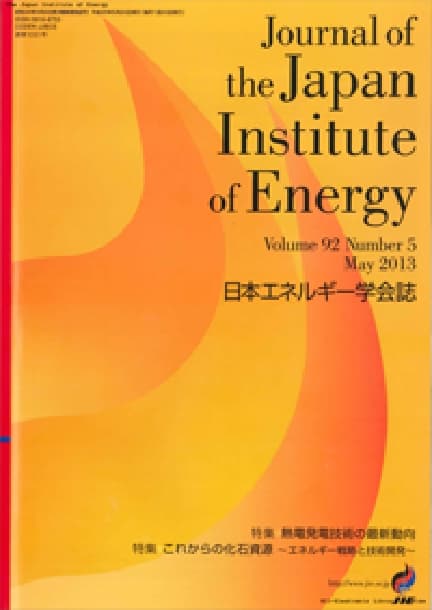2-step PSA導入したBio-H2製造プロセスに対するエクセルギー解析及び環境影響評価
近藤 頌大, 永石 平, 堂脇 清志
pp. 77-87
DOI:
10.3775/jie.97.77抄録
In recent years, technological development of fuel cells has progressed, and hydrogen demand for the fuel is expanding. However, since fossil fuel is mainly used as the energy source for hydrogen, from the viewpoint of life cycle assessment (LCA), even if hydrogen is used as energy, it contributes to the emission of greenhouse gases. Therefore, we have been developing biomass-derived hydrogen (Bio-H2) production process. It was deemed that the hydrogen purification process (PSA; pressure swing adsorption) had the most environmental impact. as a solution to that, we developed a 2-step PSA. However, the effective use of energy and the environmental impact in the Bio-H2 production process that introduced 2-step PSA have not been conducted. Therefore, in order to verify the effective use of energy and the environmental impact of the process, we designed Bio-H2 production process using 2-step PSA based on gasification and purification experimental data, and evaluate the effectiveness of energy use of the process using the exergy analysis. In addition, we assessed the environmental impact of the process using LCA analysis. As a result, it was shown that the exergy efficiency of the 2-step PSA case could be improved by 1.7 points over that of the conventional PSA case. Furthermore, compared to the conventional PSA case, LCA analysis resolved that consumption of fossil fuel would be reduced in the case of 2-step PSA case, and the effect of global warming be greatly reduced. By using the evaluation method integrating the exergy analysis and the environmental impact assessment, which was newly proposed in this paper, we believe that it should contribute to promoting technology development of energy conversion process derived from renewable energy.
他の人はこちらも検索
日本エネルギー学会誌 Vol.97(2018), No.4
日本エネルギー学会誌 Vol.98(2019), No.5
日本エネルギー学会誌 Vol.97(2018), No.2










